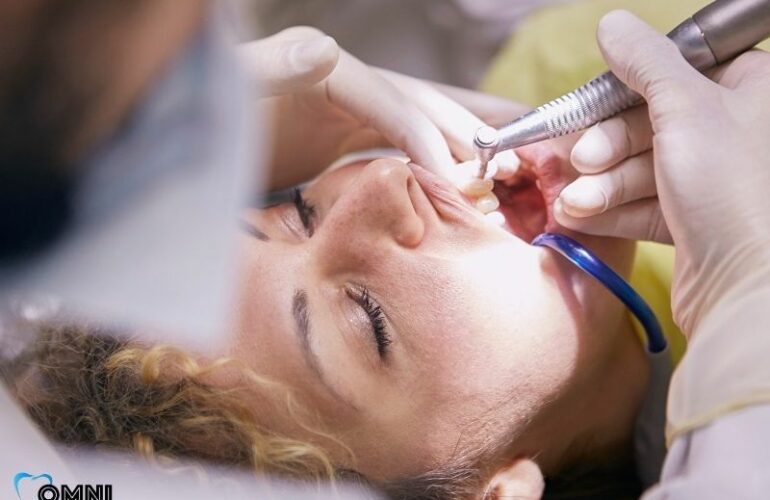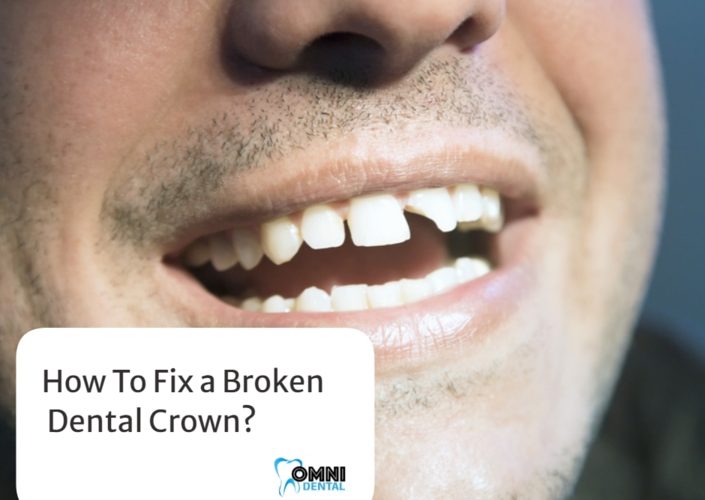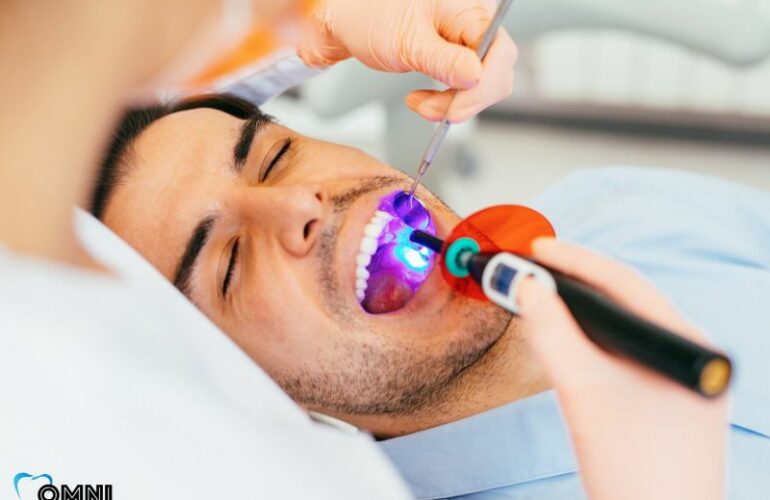The Crucial Role of Oral Cancer Screenings in Health
Oral cancer is a serious health concern affecting thousands of people in the United States annually. In Illinois alone, hundreds of new cases are diagnosed annually. Oral cancer, which includes mouth cancer and head and neck cancer, is often overlooked in its early stages. However, early detection is crucial to improving treatment outcomes and saving lives. That’s why oral cancer screenings are so important.
Why Oral Cancer Screenings are Essential
Catching Oral Cancer Early Can Save Lives
Oral cancer can be treated effectively if caught in the early stages. The survival rate for oral cancer patients significantly improves with early detection. Unfortunately, many people are not diagnosed with oral cancer until it has advanced, making treatment more challenging and decreasing the chances of a successful recovery.
Many Oral Cancers are Asymptomatic
One of the reasons why oral cancer often goes undetected is that many types of cancer can be asymptomatic, meaning they do not cause noticeable symptoms. For example, white patches in the mouth could be a sign of cancer but may go unnoticed. Regular oral cancer screenings can help detect oral cancer even when no symptoms are present.
Oral Cancer Screenings are Quick and Painless
Routine screenings for oral cancer are a simple and painless process. They can be performed by your dentist or oral health professional during your regular dental checkups. These screenings are an essential part of maintaining your overall oral health and preventing the development of cancer.
Who Should Get Oral Cancer Screenings?
Everyone is at Risk for Oral Cancer
While some individuals may be at a higher risk for oral cancer, everyone should consider getting screened. Oral cancer can affect people of all ages, genders, and backgrounds. By undergoing regular oral cancer screenings, you can ensure that any signs of cancer are detected and addressed promptly.
Certain Populations May Be at Higher cancer Risk
Some factors for oral cancer may put certain populations at a higher risk. Human papillomavirus (HPV) is a common cause of mouth and throat cancers. Additionally, individuals with a history of smoking, heavy alcohol use, or a family history of oral cancer may be more susceptible to developing the disease.
People with a History of Smoking or Heavy Drinking Should Get Screened Regularly
As mentioned earlier, smoking and heavy alcohol consumption are significant risk factors for developing oral cancer. If you have a history of either, it’s essential to get screened regularly to monitor your oral cavity for any signs of cancer.

What to Expect During an Oral Cancer Screening
Visual Inspection of the Mouth and Throat
During an oral cancer screening, your dentist or oral health professional will visually inspect your mouth and throat, looking for any abnormalities, such as white patches or lesions. They may also feel for lumps or other irregularities in the oral cavity.
Use of Specialized Tools for Early Detection
In some cases, specialized tools may be used to perform oral cancer screenings, such as lights or dyes that can help detect cancerous cells. These tools can help identify early stages of cancer that may not be visible to the naked eye.
Biopsy Procedures If Suspicious Lesions are Found
If your dentist or oral health professional finds any suspicious areas during the screening, they may recommend a biopsy. A small sample of tissue will be taken and sent to a lab for further analysis to determine if cancer is present.
How Often Should You Get Oral Cancer Screenings?
Frequency Depends on Individual Risk Factors
The frequency of oral cancer screenings can vary depending on your individual risk factors. Your dentist or oral health professional will evaluate your risk and recommend a screening schedule that best suits your needs. For those at a higher risk, more frequent screenings may be advised.
Guidelines for Oral Cancer Screening Frequency
For most individuals, it is recommended to have an oral cancer screening at least once a year during your regular dental checkup. However, those with higher risk factors, such as a history of smoking or heavy drinking, may need to be screened more often. It’s essential to discuss your risk factors with your dentist or oral health professional to determine the appropriate screening schedule for you.
Regular Screenings are Important for Long-Term Health
By maintaining a consistent schedule for oral cancer screenings, you can ensure the early detection and treatment of any potential issues. Regular screenings are crucial to preserving your long-term oral and overall health.
The Importance of Prioritizing Oral Cancer Screenings
A Simple Screening Can Save Your Life
Oral cancer screenings are a simple and painless procedure that can have a significant impact on your health. Detecting oral cancer in its early stages greatly improves the chances of successful treatment and recovery. By prioritizing these screenings, you can potentially save your life.
Prevention and Early Detection are Key to Oral Cancer Treatment
Preventing oral cancer through education and awareness of risk factors is essential. Equally important is early detection, which can be achieved through routine screenings performed by your dentist or oral health professional. By understanding the importance of oral cancer screenings and incorporating them into your regular dental care, you can take a proactive approach to preserving your oral health and overall well-being.
At Omni Dental, we are committed to providing comprehensive oral health care, including oral cancer screenings, to help ensure the long-term health of our patients. Don’t wait to prioritize your oral health – schedule your next dental checkup and oral cancer screening today.





